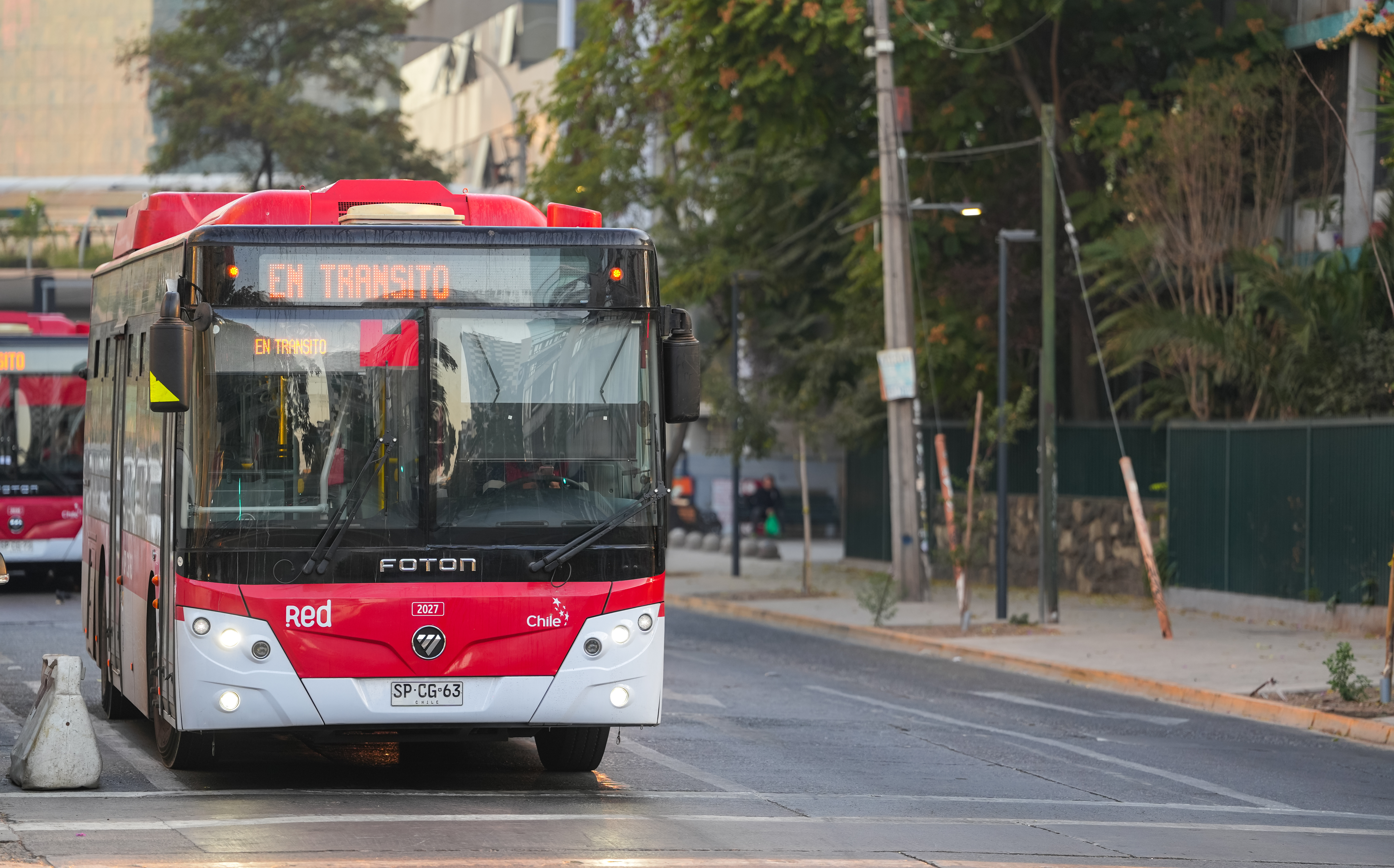- Authors
- Linda Caceres Leal, Joan Vidal Casas
- Publication number
- 130-2025-EN
- Version number
- 2.0
- Publication date
-
21 May 2025
- Pages
- 8
- Suggested citation
- Agora Verkehrswende (2025): Towards Decarbonising Transport: Chile 2025 – A Stocktake on Sectoral Ambition.
This content is also available in: German
Towards Decarbonising Transport: Chile 2025
A Stocktake on Sectoral Ambition

Preface
Chile’s presidency of the International Transport Forum (ITF) from 2024 to 2025 highlights Chile’s role as a regional leader in turning ambitious climate commitments into action. To mark this occasion, Agora Verkehrswende presents a factsheet on Chile’s progress in decarbonising transport. The factsheet compiles the latest data on climate ambition in the transport sector, renewable energy deployment, urban clean mobility initiatives, and green hydrogen targets. This overview highlights both Chile’s advances and the remaining challenges on the path to a net-zero transport sector.
The country boasts high renewable energy potential thanks to the Atacama Desert, where solar radiation rates are among the highest in the world, and to Patagonia’s strong winds. These enable Chile to meet its ambitious targets for renewable power of 80 percent by 2030 and 100 percent by 2050.
With 88 percent of its population living in cities, Chile has prioritised sustainable public transport. The capital, Santiago, now operates the largest electric bus fleet outside China, with over 38 percent of buses electrified as of early 2025 and a target of full electrification by 2040. Beyond urban mobility, Chile is also pioneering green hydrogen for freight transport, aiming to power 71 percent of its freight sector with this clean fuel by 2050 under its National Green Hydrogen Action Plan.
These efforts are backed by binding national commitments. Chile’s updated Nationally Determined Contribution (NDC, 2022) sets the target of carbon neutrality by 2050, supported by measures, such as phasing out coal by 2040 and banning new internal combustion engine car and bus sales by 2035. While there is pressure to speed up the country’s coal exit to 2030, these policies already solidify Chile’s role as a regional climate leader.
Chile’s progress offers valuable lessons for other emerging economies. Its experience demonstrates that electric and hydrogen-powered transport is gaining momentum across Latin America, leaving diminishing space for internal combustion engines in the future of mobility.
Bibliographical data
Downloads
-
Factsheet
pdf 2 MB
Towards Decarbonising Transport: Chile 2025
A Stocktake on Sectoral Ambition

